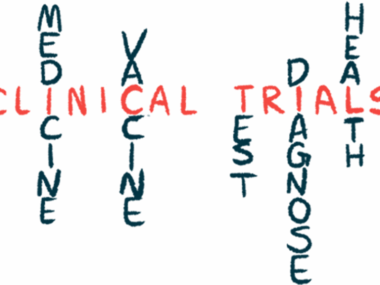2 patients in France get hemophilia B gene therapy Hemgenix
Patients are first to receive treatment in European real-world setting
Written by |

Hemgenix (etranacogene dezaparvovec), the first approved hemophilia B gene therapy, has been successfully administered to two patients in France, marking the first time the treatment has been given in a real-world setting in Europe.
The gene therapy, originally developed by uniQure and marketed by CSL Behring, was conditionally approved by the European Commission in 2023 for adults with severe and moderately severe hemophilia B without a history of inhibitors. CSL acquired Hemgenix’s worldwide commercialization and licensing rights under a May 2021 agreement.
Hemgenix has been approved in the U.S. and in Canada, and recently in Switzerland for men ages 18 and older with severe or moderately severe hemophilia B.
“Only a few decades ago, gene therapy for hemophilia was a distant concept, which has now become reality,” Lutz Bonacker, PhD, senior vice president and general manager of European commercial operations for CSL Behring, said in a company press release. “Accordingly, the first two patients treated with HEMGENIX since receiving European approval is a major accomplishment and a testament to the joint commitment of the hemophilia B community, as well as the access and reimbursement authorities, in bringing innovative therapies to patients,”
The two patients received the gene therapy at hemophilia treatment centers in France.
Providing gene therapy access in Europe
“This milestone has been made possible by the innovative Direct Access scheme adopted in France, allowing patients to benefit from early access to pioneering treatments,” Bonacker said. “We are encouraged to see increasing access to gene therapies in European countries and are fully committed to ensuring that access to potentially life-changing treatment continues.”
France’s direct access program provides one year of insurance coverage for innovative treatments that have been approved for marketing but haven’t yet made it through the pricing and reimbursement process. Hemgenix was the first treatment to be authorized under the process.
Hemophilia is a genetic blood disorder that hampers the body’s ability to form blood clots to prevent excessive bleeding. In hemophilia B, the second-most common type of hemophilia, this inability to form blood clots is caused by mutations in the F9 gene, which gives instructions for making clotting factor IX (FIX).
Before the development of gene therapies, patients relied on prophylactic (preventive) FIX replacement therapies to provide a version of the missing clotting factor. While deemed effective, replacement therapies require patients to follow a strict treatment regimen, and spontaneous bleeds may still occur.
Hemgenix uses a harmless virus to deliver a working version of the F9 gene — called FIX-Padua — to liver cells, the main producers of clotting factors in the body. The gene therapy, given via an into-the-vein infusion, aims to restore the body’s ability to produce a functional version of FIX, helping prevent and control bleeds in the long term.
Approval was supported by data from the ongoing Phase 3 HOPE-B trial (NCT03569891), which recruited patients with severe or moderately severe hemophilia B.
Two years after treatment, Hemgenix had led to stable and sustained increases in FIX levels. Between seven to 24 months after treatment, the annualized bleeding rate dropped by 64%, and the majority of patients (94%) had stopped their routine replacement therapies. The gene therapy was generally well tolerated, with no serious treatment-related side effects reported.



